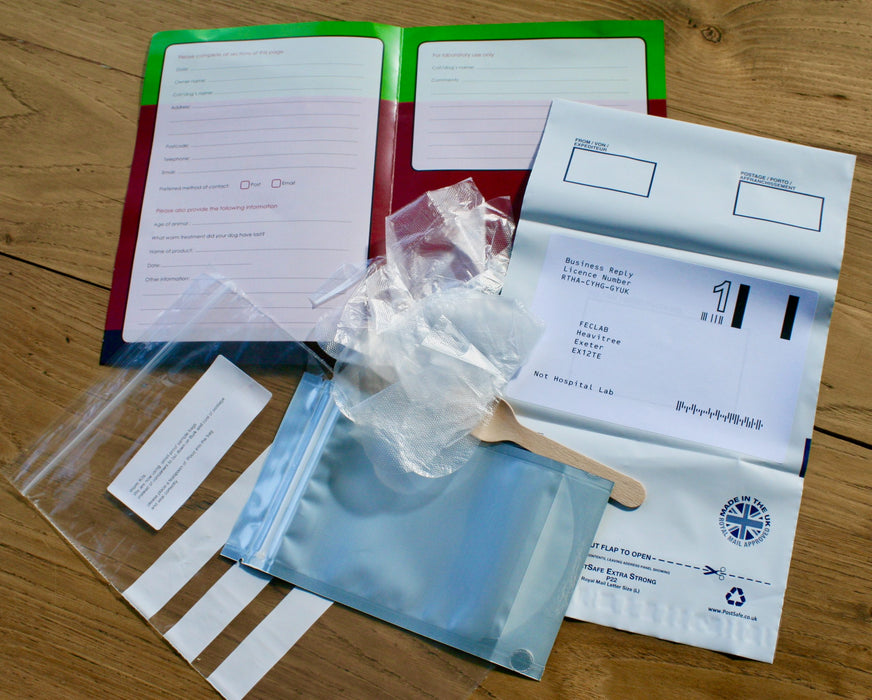
Worm Count Kit - Feclab
Buy 2 or more kits and save 10%
A safe and non toxic alternative to administering usually unnecessary commercial wormers. Why give your dog a worm treatment (not preventative), if they aren't carrying a worm burden in the first place?
Simply fill in the information, pop the fecal sample in the packaging and free post envelope provided, then wait a couple of days for your results to be emailed or texted to you!
By using worm egg counts as part of your animal's health and worm management programme we can greatly reduce the number of times we use chemicals to treat for worms which is not only far better for your animals, it can also be far better for your purse.
Using worm egg counts can also reduce the resistance that develops through the continual use of chemicals which can lead to conventional wormers being less effective and the worm burden increase in the animals.
All kits contain a prepaid return postage
Feclab worm kit includes all you need to screen for the following types of worms in cats or dogs:
- Tapeworm
- Roundworm
- Hookworm
- Coccidia
- Whipworm
- Giardia Cyst: Under the Intestinal worm count kit, Feclab screen for Giardia. It is worth noting that this is reliant on the cyst being present within the sample provided. If your pet is showing symptoms relating to Giardia or if you would like to specifically test for Giardia as part of your routine screening then we would recommend using Feclab's Giardia Antigen lab testing or Giardia Antigen Rapid home testing kit for this. (Giardia Antigen Performance characteristics: Relative sensitivity: 95.12% / Relative specificity: 95.87%)
